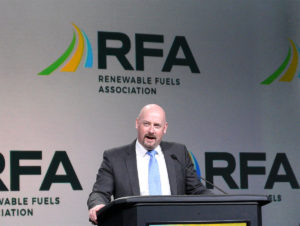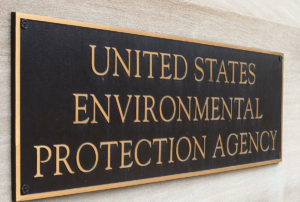 The U.S. Senate Committee on Environment and Public Works held a hearing Wednesday to examine the Renewable Fuel Standard (RFS).
The U.S. Senate Committee on Environment and Public Works held a hearing Wednesday to examine the Renewable Fuel Standard (RFS).
Chairman Tom Carper (D-DE) said the committee has not held an oversight hearing on the RFS since 2016. “Since the implementation of the program, we’ve come a long way toward achieving our goals. Economic growth in agricultural communities has expanded and our fuels have become significantly cleaner than they were two decades ago,” said Carper. “However, EPA has been slow to make decisions on new advanced biofuel applications and pathways for usage. At the same time, the Clean Air Act prohibits some of the advanced renewable fuels that qualify for state programs from qualifying as renewable fuel under the federal program.”
Committee member Sen. Joni Ernst (R-IA) pushed back against the narrative by some at the hearing that the RFS is the cause for higher gas prices. “It’s not, it’s about the price of oil. So, I reject that,” said Ernst, who says it has nothing to do with the price of Renewable Identification Numbers (RINS). “Any claim that RIN prices are increasing gas prices, it is a bunch of hogwash.”
EPW RFS hearing - Sen. Joni Ernst (R-IA)Sen. Ernst introduced for the record comments from both the Renewable Fuels Association and Clean Fuels Alliance America.
RFA President and CEO Geoff Cooper said the Renewable Fuels Standard has been a “resounding success” by any measure. “In addition to decreasing reliance on imported petroleum, the RFS has reduced emissions of harmful tailpipe pollutants and greenhouse gases, lowered consumer fuel prices, supported hundreds of thousands of jobs in rural America, and boosted the agricultural economy by adding value to the crops produced by our nation’s farmers,” wrote Cooper. “Simply put, the RFS ensures renewable fuels are able to gain access to a fuel market that had been monopolized for nearly a century and would otherwise be closed to competition.”
“The Renewable Fuel Standard (RFS) is necessary to build domestic alternative fuel production capacity, bolster U.S. energy security, and address environmental health. It is succeeding,” said Kurt Kovarik, Clean Fuels’ Vice President of Federal Affairs. “Biodiesel and renewable diesel are solutions that reduce carbon now.”



 In the wake of the successful flex-fuel Jeep Wrangler project in 2019, the
In the wake of the successful flex-fuel Jeep Wrangler project in 2019, the  Biofuels’ stakeholders and experts from across Nebraska and the nation will join together next month for the annual
Biofuels’ stakeholders and experts from across Nebraska and the nation will join together next month for the annual 


 The
The  Ashley Borchert, former Digital Marketing and Social Media intern at Midcontinent Communications (Midco), replaces Katie Muckenhirn who took on the role of ACE’s Vice President of Public Affairs last fall. Borchert’s responsibilities include handling the organization’s social media platforms and assisting with media and member relations, along with other communication activities, including ACE websites, Ethanol Today magazine, and events and advocacy efforts.
Ashley Borchert, former Digital Marketing and Social Media intern at Midcontinent Communications (Midco), replaces Katie Muckenhirn who took on the role of ACE’s Vice President of Public Affairs last fall. Borchert’s responsibilities include handling the organization’s social media platforms and assisting with media and member relations, along with other communication activities, including ACE websites, Ethanol Today magazine, and events and advocacy efforts. Ron Lamberty’s new role as the organization’s Chief Marketing Officer makes him responsible for the planning and implementation of ACE’s market development and member relations efforts. As CMO, he’ll continue leading ethanol business development in the fuel marketing sector and build strategic relationships with current and prospective ACE members.
Ron Lamberty’s new role as the organization’s Chief Marketing Officer makes him responsible for the planning and implementation of ACE’s market development and member relations efforts. As CMO, he’ll continue leading ethanol business development in the fuel marketing sector and build strategic relationships with current and prospective ACE members. industry.
industry.